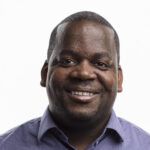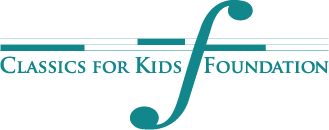
Creators Speak—August 2019
Play On Philly
https://playonphilly.org/
Describe your initial vision for your program, and some of the important steps you took to make it a reality?
I was inspired by the story of the music education and social development program of Venezuela, El Sistema, through their founder’s 2009 TED Prize acceptance speech. When I reflected on my musical experiences growing up in Atlanta and my formal training at The Curtis Institute of Music in Philadelphia, I was confident that a similar program could be established in Philly. I entered the Sistema Fellows program in the fall of 2009 after finishing my undergraduate degree the spring prior. This experience sent me to Venezuela for two months and over six months of non-profit management training. Engaging a network of non-profit professionals, artists, and local philanthropists, I developed a proposals and vision for Play On Philly (POP) that received an angel investment to launch in 2010. With the mentorship from dozens of professionals, we have expanded our programs and built a strong organization.
What are some of the biggest challenges that you faced in starting/developing your program, and what did you learn from those challenges?
I honestly had no idea what I was doing when I started, but I understood that I needed to have a solid case for why I wanted to start POP in a city with several well-developed and established youth music education providers. It is much easier to start a program than it is to build an organization (governing Board of Directors, annual fundraising that allows you to sustain operations, and internal controls and systems that facilitate growth). However, in the planning and development of POP, I showed my network of colleagues and mentors my plans and asked for their advice in how I could attract funding, partnerships and a team to help me make POP a success. That was a very humbling process that took a year to complete and is a process that I continue to do!
What were some of your biggest successes? Why were they successful for you?
We were successful in raising over $3M and holding major concerts with artists like Sir Simon Rattle, Marin Alsop, Wynton Marsalis, and Bobby McFerrin in our first two years. I believe we were successful because we received an angel investment before we launch that allowed me and a colleague to dedicate all of our time to POP, pay teachers a very competitive hourly rate, and run a high-quality music program. With those resources and a clear business plan for program implementation and evaluation, we were able to be focused and consistent in our delivery.
What were some of the directions that didn’t work, and why?
We tried developing “creative” programs (composition, jazz, improvisation) and provide academic tutoring that only ended up distracting us from being a really good music education program. It was easy for Board members, partners and staff to come in with all sorts of ideas not realizing that we only had 3 hours with the kids each afternoon. While that sounds like a lot, after you put in transitions, snack time, and arrival/dismissal, each student was lucky to have 90 minutes of instruction time. It took us a couple of years to see that our brilliant idea to provide more variety in our programming was hurting us and it took a couple of years to get back on track.
If you could do it all again, how would you do things differently?
Grow at a slower rate and chill out. I wish I realized when I was in my early 20s that I would probably have a 45+ professional career. I didn’t have to try to accomplish everything in the first five years.
Where would you like to go from here?
I am trying to become a more empathetic leader and am focusing on my professional development in the role as Executive Director of Play On Philly. There is so much work here to accomplish and a lot to learn from new experiences.
Any thoughts you’d like to share with program leaders?
Quickly figure out what you don’t know and build mentors and coaches in your network who can help you bridge your gaps. Seek out other’s advice and constructive criticism. Continually strive to grow and learn new skills. Build trust through being honest about your struggles and failures as much as you can brag about your successes. Always insist on knowing if you are having an impact and delivering on what you say you are doing.
Three important lessons learned:
- The drive and determination to push myself to learn skills that lay beyond my current capabilities
- The ability to sustain a mentally and emotionally demanding process over many years
- The willingness to accept expert and peer coaching/criticism as a part of my professional development.
Any thoughts you’d like to share with students?
Do more than just practice and perform in school. Build relationships with everyone around you. Your classmates will be the musicians on the other side of the table judging your audition, the junior staff member of your conservatory / school of music could someday run the orchestra you are a member of, and the nice old couple that asks you a simple question in the lobby of your next performance could be your biggest patrons as you begin your professional career. Dedicate at least one hour each week to get to know the people around you and follow up with them!
Any more advice that you can give to young musicians embarking on a career of musical and social entrepreneurship?
Nothing is wrong with figuring out later that you want to take a different path. Embrace what you may be feeling and go with your gut. Nothing is worse than spending decades chasing a career that leaves you feeling empty.
